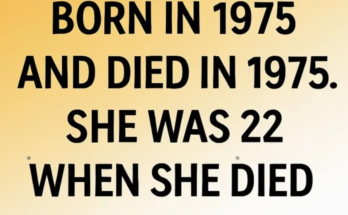From the very beginning, my mother carried quiet doubts about my wife. Even on my wedding day, when most mothers beam with joy, she pulled me aside with tears in her eyes and whispered, “Son, she’s not right for you.”
I laughed softly, brushing off her worry. “Give it time, Mom,” I said. “You’ll love her eventually.”
She nodded, but her expression held a sadness I didn’t understand back then.
Two years later, my mother passed away. While sorting through her belongings, I found something I never expected—hidden beneath her bed was my wife’s personal journal. It was placed carefully, almost as if my mother wanted me to find it someday.
At first, I thought my mother had simply been curious. But as I opened the worn notebook, I realized it wasn’t my wife’s journal—it was my mother’s. She had filled it with her observations, written over time.
Each entry described small but troubling moments she had witnessed: how my wife subtly steered conversations, isolated me from friends, and made decisions that seemed designed to control rather than support.
My heart sank as I read on. These weren’t wild accusations—they were patterns I had lived through but never recognized. I had dismissed them as quirks of personality, never realizing how carefully they were shaping my life.
That evening, I took the journal home but couldn’t bring myself to read more. When my wife asked where I had been, I simply said I’d been with a friend. She smiled and moved on—but something inside me shifted.
Later that night, I continued reading. Each page connected to memories I had buried: canceled visits to my mother’s house, excuses that kept me from seeing old friends, quiet manipulations that always left me feeling guilty.
For the first time, I saw how my wife had slowly created distance between me and the people I loved most.
The next morning, I confronted her—not about the journal, but about the growing tension I could no longer ignore. At first, she laughed, calling me dramatic. But as I listed specific examples, her tone changed.
She became defensive, angry, even tearful. By the end of the conversation, she said she needed space and walked out.
The house fell silent. It wasn’t peaceful—it was hollow. And in that emptiness, I finally understood what my mother had tried to protect me from.
A few days later, my wife’s sister reached out unexpectedly. Her voice trembled as she confessed, “I don’t know if you’re aware, but she’s been hiding money from you.”
My stomach dropped. She explained that my wife had been transferring money from our joint accounts into a private one—something I had never noticed.
When I confronted my wife, she didn’t deny it. She said it was for “security” and claimed she had a right to it. In that moment, I heard my mother’s voice echo in my mind, urging me to open my eyes.
The legal process that followed wasn’t easy, but it gave me clarity. I managed to recover most of what was taken, but more importantly, I regained something far greater—my independence and peace of mind.
While clearing my mother’s home for the last time, I discovered a letter she had written to me before she passed. Her words were gentle but firm: “Love deeply, but see clearly. Trust your instincts—they will protect you when others cannot.”
I cried for a long time after reading that letter. Somehow, even after her passing, she had found a way to guide me.
Months later, I met someone new—a woman whose honesty and kindness reminded me what genuine love feels like. With her, I began to heal and rebuild trust.
I also started volunteering at a local support center, helping people recognize and escape manipulative relationships. It felt like a way to honor my mother’s legacy—to turn pain into purpose.
One afternoon, while packing the last of my mother’s things, I found an envelope addressed to my ex-wife. Inside was a short note:
“I forgive you. I hope you find the strength to be honest—with yourself and others.”
Her grace, even toward the person who caused me so much hurt, moved me deeply. It reminded me that forgiveness isn’t about excusing someone’s actions—it’s about freeing your own heart.
Today, I keep my mother’s journal and letters on a shelf in my living room. They’re reminders of how love, even when painful, can open our eyes.
I’ve learned that love alone isn’t enough—it must be built on respect, honesty, and trust. Sometimes, the people who warn us are doing it not to discourage us, but to protect us from heartbreak we can’t yet see.
If you’ve ever ignored a loved one’s concern, take a moment to reflect. Sometimes, wisdom comes disguised as worry.
And if this story resonates with you, share it with someone who might need it. You never know—your words could help someone else find the strength to see clearly, too.




